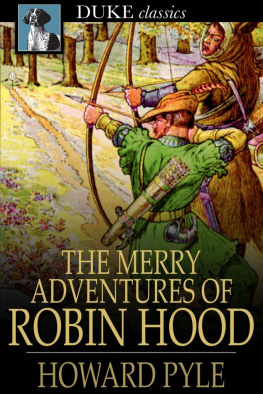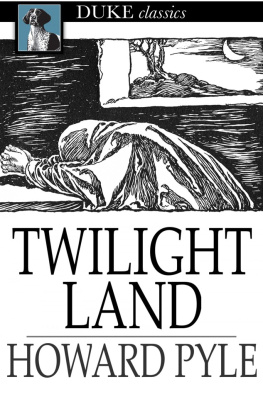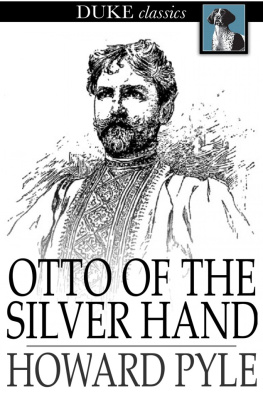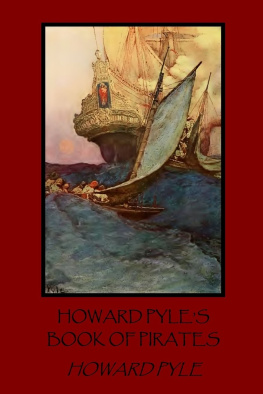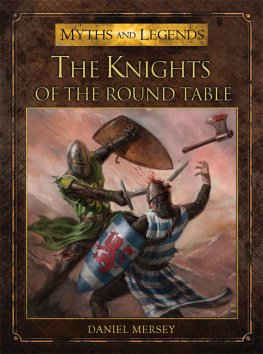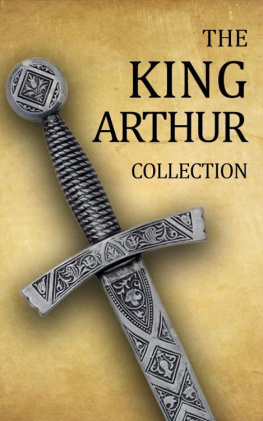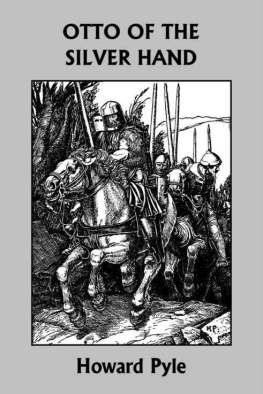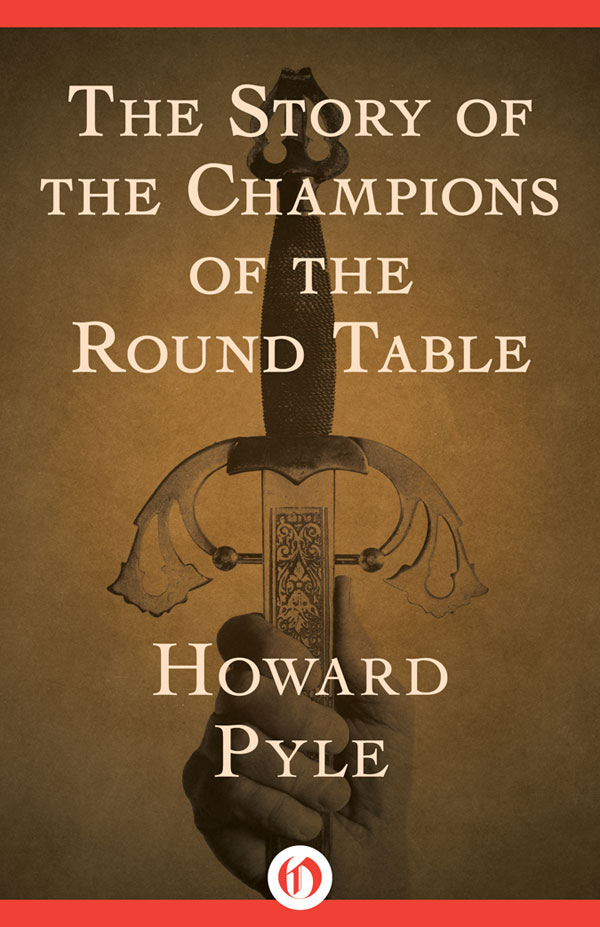The Story of the Champions of the Round Table
Howard Pyle

In 1902 the distinguished American artist Howard Pyle undertook to retell and illustrate the legend of King Arthur and the Knights of the Round Table. His four-volume work has long been considered one of the outstanding interpretations of the Arthur cycle.
The Story of the Champions of the Round Table , the second of Pyles volumes, was originally published in 1905. Reissued now, identical in format to the original volume, with Pyles superb illustrations and decorations, it is destined to reach new generations of readers. The Story of the Champions of the Round Table recounts the full and moving saga of three of Arthurs famous knights: Percival, Tristram, and Launcelot of the Lake.
The period in which Howard Pyle did his work frequently has been spoken of as that Golden Age in childrens literature that was to last for the decade to follow. It is difficult to do justice to his contribution to the shining quality of that era. The magnitude and diversity of his work eludes definition. Creative artist and born storyteller, each aspect of his twofold genius enriched and interpreted the other.
Elizabeth Nesbitt, in A Critical History of Childrens Literature
Contents
Foreword
In a book which was written by me aforetime, and which was set forth in print, I therein told much of the history of King Arthur; of how he manifested his royalty in the achievement of that wonderful magic sword which he drew forth out of the anvil; of how he established his royalty; of how he found a splendid sword yclept Excalibur in a miraculously wonderful manner; of how he won the most beautiful lady in the world for his queen; and of how he established the famous Round Table of noble worthy knights, the like of whose prowess the world hath never seen, and will not be likely ever to behold again.
Also I told in that book the adventures of certain worthy knights and likewise how the magician Merlin was betrayed to his undoing by a sorceress hight Vivien.
Now, if you took any joy in reading that book, I have great hope that that which follows may be every whit as pleasing to you; for I shall hereinafter have to do with the adventures of certain other worthies with whom you may have already become acquainted through my book and otherwise; and likewise of the adventures of certain other worthies, of whom you have not yet been told by me.
More especially, I believe, you will find entertainment in what I shall have to tell you of the adventures of that great knight who was altogether the most noble of spirit, and the most beautiful, and the bravest of heart, of any knight who ever livedexcepting only his own son, Galahad, who was the crowning glory of his house and of his name and of the reign of King Arthur.
However, if Sir Launcelot of the Lake failed now and then in his behavior, who is there in the world shall say, I never fell into error? And if he more than once offended, who is there shall have hardihood to say, I never committed offence?
Yea, that which maketh Launcelot so singularly dear to all the world, is that he was not different from other men, but like other men, both in his virtues and his shortcomings; only that he was more strong and more brave and more untiring than those of us who are his brethren, both in our endeavors and in our failures.
The Story of Sir Launcelot
Prologue
It hath already been set forth in print in a volume written by me concerning the adventures of King Arthur when he first became king, how there were certain lesser kings who favored him and were friendly allies with him, and how there were certain others of the same sort who were his enemies.
Among those who were his friends was King Ban of Benwick, who was an exceedingly noble lord of high estate and great honor, and who was of a lineage so exalted that it is not likely that there was anyone in the world who was of a higher strain.
Now, upon a certain time, King Ban of Benwick fell into great trouble; for there came against him a very powerful enemy, to wit, King Claudas of Scotland. King Claudas brought unto Benwick a huge army of knights and lords, and these sat down before the Castle of Trible with intent to take that strong fortress and destroy it.
This noble Castle of Trible was the chiefest and the strongest place of defence in all King Bans dominions, wherefore he had intrenched himself there with all of his knights and with his Queen, hight Helen, and his youngest son, hight Launcelot.
Now this child, Launcelot, was dearer to Queen Helen than all the world besides, for he was not only large of limb but so extraordinarily beautiful of face that I do not believe an angel from Paradise could have been more beautiful than he. He had been born with a singular birth-mark upon his shoulder, which birth-mark had the appearance as of a golden star enstamped upon the skin; wherefore, because of this, the Queen would say: Launcelot, by reason of that star upon thy shoulder I believe that thou shalt be the star of our house and that thou shalt shine with such remarkable glory that all the world shall behold thy lustre and shall marvel thereat for all time to come. So the Queen took extraordinary delight in Launcelot and loved him to the very core of her heartalbeit she knew not, at the time she spake, how that prophecy of hers concerning the star was to fall so perfectly true.
Now, though King Ban thought himself very well defended at his Castle of Trible, yet King Claudas brought so terribly big an army against that place that it covered the entire plain. A great many battles were fought under the walls of the castle, but ever King Claudas waxed greater and stronger, and King Bans party grew weaker and more fearful.
So by and by things came to such a pass that King Ban bethought him of King Arthur, and he said to himself: I will go to my lord the King and beseech help and aid from him, for he will certainly give it me. Nor will I trust any messenger in this affair other than myself; for I myself will go to King Arthur and will speak to him with my own lips.
Having thus bethought him, he sent for Queen Helen to come into his privy closet and he said to her: My dear love, nothing remaineth for me but to go unto the court of King Arthur and beseech him to lend his powerful aid in this extremity of our misfortunes; nor will I trust any messenger in this affair but myself. Now, this castle is no place for thee, when I am away, therefore, when I go upon this business, I will take thee and Launcelot with me, and I will leave you both in safety at King Arthurs court with our other son, Sir Ector, until this war be ended and done. And to these Queen Helen lent her assent.
So King Ban summoned to him the seneschal of the castle, who was named Sir Malydor le Brun, and said to him: Messire, I go hence to-night by a secret pass, with intent to betake me unto King Arthur, and to beseech his aid in this extremity. Moreover, I shall take with me my lady and the young child Launcelot, to place them within the care of King Arthur during these dolorous wars. But besides these, I will take no other one with me but only my favorite esquire, Foliot. Now I charge thee, sir, to hold this castle in my behalf with all thy might and main, and yield it not to our enemies upon any extremity; for I believe I shall in a little while return with sufficient aid from King Arthur to compass the relief of this place.
So when night had fallen very dark and still, King Ban, and Queen Helen, and the young child Launcelot, and the esquire Foliot left the town privily by means of a postern gate. Thence they went by a secret path, known only to a very few, that led down a steep declivity of rocks, with walls of rock upon either side that were very high indeed, and so they came out in safety beyond the army of King Claudas and into the forest of the valley below. And the forest lay very still and solemn and dark in the silence of the nighttime.




